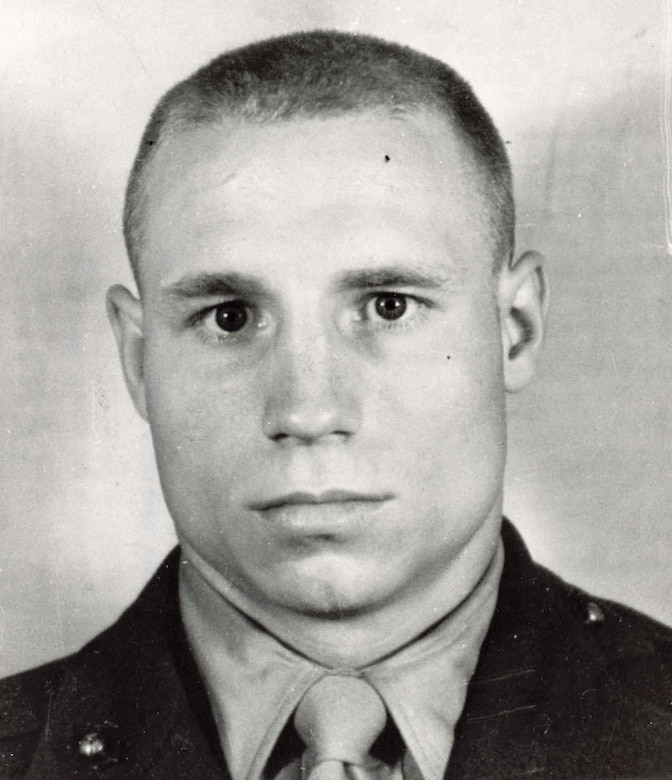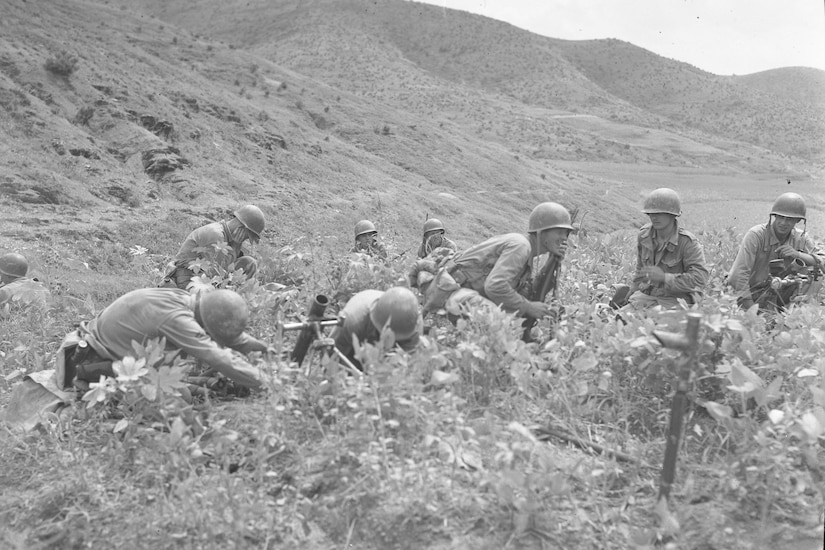


Do I save others or save myself?
That’s a question an unknown number of service members have asked themselves during battle throughout the ages. It’s one Marine Corps Cpl. Jack Arden Davenport didn’t hesitate on. During an attack in Korea, he chose to save his comrade’s life instead of his own. That selfless decision led him to receive a posthumous Medal of Honor.
Davenport was born Sept. 7, 1931, in Kansas City, Missouri, to Fred and Gloria Davenport. He had a sister named Jane and a twin brother, Karl, who served in the Navy.
Davenport was an active child who always liked to be on the go, his parents told the Kansas City Times in 1952. Throughout high school, he played baseball and was a paperboy for the Kansas City Star newspaper, where his father worked.
After graduating from Paseo High School in 1949, Davenport studied for a year at the University of Kansas, where he played on the school’s football team. He was also an amateur boxer who participated in at least one Golden Gloves tournament.
However, when the Korean War broke out, Davenport decided to trade in studying for the fight against communism. He enlisted in the Marine Corps July 1950. After basic training, he was stationed at Camp Pendleton outside of San Diego, where he earned the nickname “Dynamite” from other Marines. In December of that year, he was deployed to join the 3rd Battalion, 5th Marine Regiment, 1st Marine Division in Korea.
According to newspaper reports of the time, Davenport was on the front lines almost continuously until the day he made the ultimate sacrifice.
Early on Sept. 21, 1951, Davenport was serving as a squad leader with Company G in the Songnae-dong area of Seoul, South Korea, when they were attacked by enemy troops trying to infiltrate their sector.
Davenport directed his comrades to defend their position. He and a fellow Marine, Pfc. Walter Barfoot, were doing so from a foxhole. Suddenly, an enemy grenade fell at their feet.
Without any concern for his own life, Davenport jumped on the deadly projectile, which killed him. Barfoot was spared, however, and their unit managed to repulse the enemy, largely in part to Davenport’s calm leadership.
Many of Davenport’s fellow Marines wrote to his family after his death, according to a December 1952 issue of the Kansas City Times.
“He was the best. They didn’t come finer or more courageous that little ole Dynamite,” one Marine wrote to Davenport’s mother.
The fallen 20-year-old’s body was returned to the U.S. in January 1952 and buried in Mount Moriah Cemetery in Kansas City.
About a year later, Davenport posthumously received the nation’s highest honor for valor. The Medal of Honor was presented to his father on his behalf during a Pentagon ceremony. Davenport’s brother, Karl, was flown in by the Navy from Japan on special leave for the ceremony.
In the late 1980s, a gymnasium at Camp Pendleton was named in Davenport’s honor.
This article is part of a weekly series called “Medal of Honor Monday,” in which we highlight one of the more than 3,500 Medal of Honor recipients who have received the U.S. military’s highest medal for valor.
Source: Department of Defense
Content created by Conservative Daily News is available for re-publication without charge under the Creative Commons license. Visit our syndication page for details.


